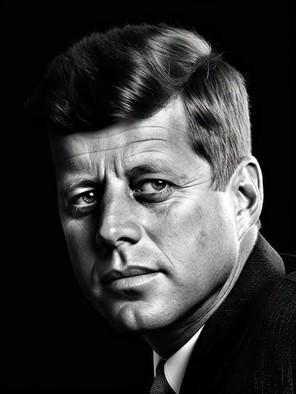Overview: The Harmonious Interplay of Music and Human Rights
In this deeply personal and thought-provoking blog, the author reminisces about the transformative 1960s era, where music and social activism intertwined. The blog paints a vivid picture of how protest songs and folk music echoed the societal changes and political unrest of the time.

The assassination of President John F. Kennenokia 225dy, a momentous event that resonated throughout the author’s life, is reflected upon through Phil Ochs’ mournful tribute, “That was the President”. The struggle against racial segregation in the southern United States is also explored, with music like Paul Simon’s “A Church is Burning” and “He was my Brother” serving as poignant reminders of the courage and resilience shown during these times.
The blog delves into the gritty realism of working-class lives as depicted by Bruce Springsteen’s music, highlighting his outspoken stance against the growing inequality in America. Springsteen’s words echo the sentiments of the Universal Declaration of Human Rights, emphasizing that the promise of these rights is being broken as wealth disparities increase.
This heartfelt piece concludes with a call to action: Together, we can create a better world. As you journey through this blog, you’ll experience the power of music as a medium for social commentary and its enduring impact on human rights advocacy.
The 1960’s
Music has a lot to say about human rights. I was young in the 1960s, the era of protest songs, new folk music and Martin Luther King Jnr. We knew that Times they are a-changing, that the answer was Blowing in the Wind (Bob Dylan), and, with the huge protests against the Vietnam War, we certainly knew the answer to Where have all the Flowers gone? The assassination of US President Jack Kennedy in November 1963 was the most searing event of my young life, and others followed. That betrayal has continued to reverberate in the public consciousness down to the present day and there is strong hope that the truth will finally be revealed. That was the President by Phil Ochs celebrates the man and mourns the President.
The college kids who battled with the black white segregation in the southern United States in the 1960s worked alongside local people and brought us A Church is Burning and He was my Brother (Paul Simon). Phil Ochs sang
“Oh, here’s to the land you’ve torn out the heart of
Mississippi, find yourself another country to be part of…”
But there was another genre of folk music, the gritty realism of working class lives, recorded by Bruce Springsteen in The River, Your Home Town, Jersey Girl and other songs.
In a comment on Genius Lyrics I found: ‘Like Woody Guthrie and Pete Seeger before him, Springsteen has often spoken out against inequality in the U.S. At a 1984 concert in Pittsburgh he said:’
“There’s something really dangerous happening to us out there. We’re slowly getting split up into two different Americas. Things are getting taken away from people that need them and given to people that don’t need them, and there’s a promise getting broken.”
Those words are proven by the picture of life experience in the 1950s and 1960s in working class America painted by Bob Dylan’s North Country Blues. Throughout history, as the rich get richer, as wealth is inherited not earned, and the poor get poorer, the ‘haves’ come to think of themselves as better than the ‘have nots’. From there is a short step to thinking ‘It’s their own fault they are poor’ and regarding the have nots as expendable. Tracy Chapman ‘celebrated’ the hopelessness of inner-city black Americans.
World Leaders 1948
Springsteen hit the nail on the head, there is a promise being broken. That promise is clear in the Universal Declaration of Human Rights agreed by world leaders in 1948 when the United Nations was first founded. The 30 human rights of the Universal Declaration all link together. The personal safety rights (Articles 1 to 5) are the fundamental precepts.
They need the legal protection or rule of law rights (Articles 6 to 11) to keep them in place and the social needs and development rights (Articles 22 to 27) are needed to keep the structures in place that make life livable.
Thank you for reading; I wept as I wrote this, tears for crushed hopes and lost innocence. Together we will make a better world. Lord Duncan McNair – Founder of Peaceful Planet

